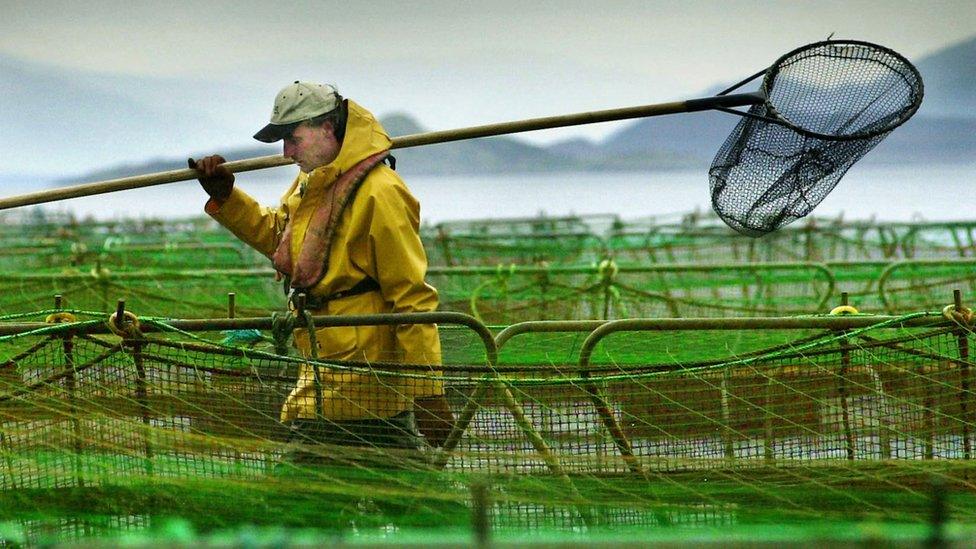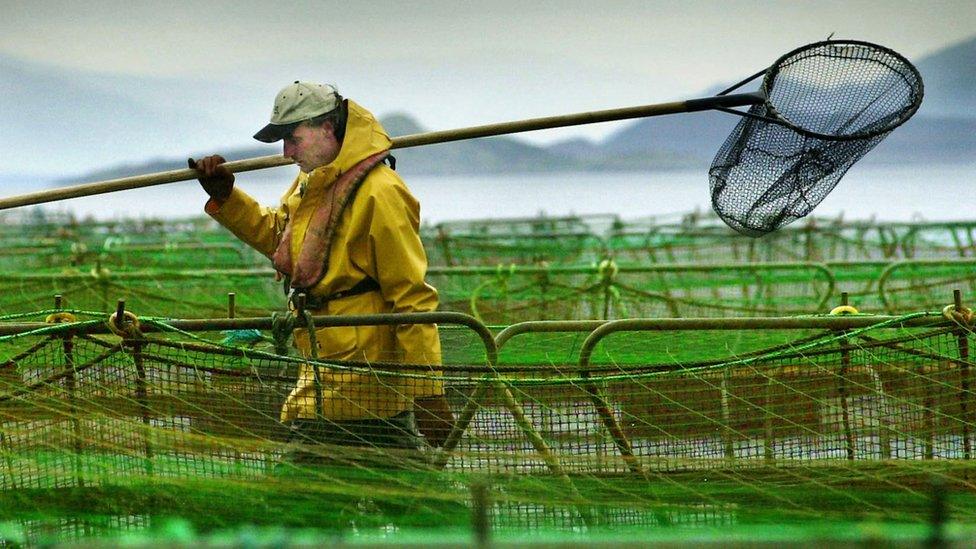Sea lice and disease behind Marine Harvest bid to save £44m
- Published

Marine Harvest is experiencing problems with sea lice and disease at its fish farms
Marine Harvest, the world's biggest salmon farmer, has announced spending cuts in response to the rising costs of treating sea lice and disease.
In Scotland, the company plunged to a 4.5m euro (£4m) loss in the final three months of last year.
This compared with earnings of 75m euros (£67m) at the end of 2016, covering both farming and processing.
That is despite an 11% increase in fish harvested, at more than 12,000 tonnes, and premium pricing for Scots salmon.
The Norway-based firm is to make 50m euros (£44m) of savings, across its international operations.
Last year it spent 1.8bn euros on operations (£1.6bn).
Reduced weight
Having shed 34 Scottish jobs last month, Marine Harvest is not expected to focus on job cuts, but on reduced costs in its supply chain, including equipment and feed.
Its results for 2017 showed continued problems with sea lice and disease at its fish farms.
The worst of these were in Norway, with a sharp rise in the cost of handling sea lice.
Fish usually have to be harvested earlier than planned when a site is infested with lice, reducing the weight of fish at the point of harvesting them, and therefore lower earnings that can be made from them.
In Scotland, Marine Harvest saw its tonnage increase during the final three months of the year, due to "biological issues" - meaning harvesting was brought forward.
Among its problems was an outbreak of an infection called pasteurella skyensis, first identified around the Isle of Skye in the 1990s, and occurring again in Scotland during the final three months of last year.
In the Norway-based company's annual report, it stated: "Production in the fourth quarter has been adversely impacted by treatments and mortality.
"While the general fish health situation improved for our Scottish operations during the three first quarters of 2017, the biological performance has been more challenging in the fourth quarter.
"This situation is not expected to improve significantly in the next quarter. Combined with low volumes, costs are expected to remain at the current high level also in the first quarter of 2018".
Global cost savings
With disease and lice infestation raising costs per kilogramme, the board stated: "It is with great concern the Board has viewed the negative cost development for the group.
"Marine Harvest has initiated a global cost savings program of 50 million euros per annum across all business units.
"Accordingly, it is of utmost importance that such initiatives are undertaken and managed closely going forward."
Among developments for the company this year is the opening of a new hatchery near Invermoriston in the central Highlands, and an £80m plant for manufacturing fish food, currently under construction at Kyleakin on Skye.
Marine Harvest also has major operations in Chile, Canada, the Faroes and Ireland.
- Published24 January 2018
